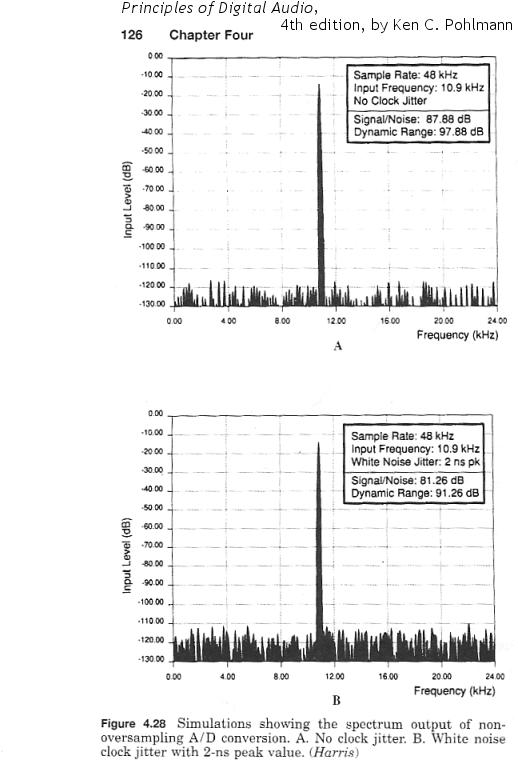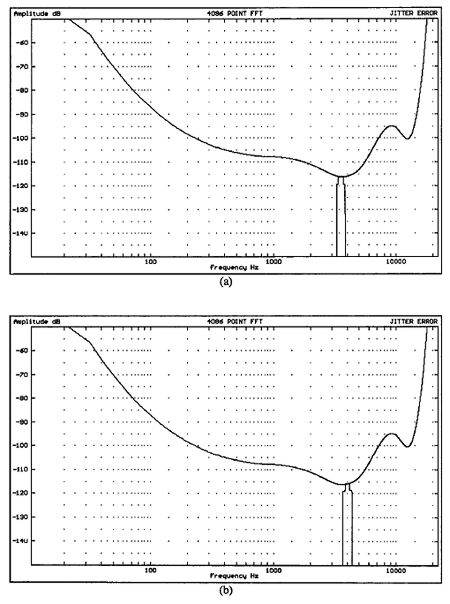This is a quotation from Bob Katz, well known recording & audio mastering engineer posted
here
After an engineer learns to identify the sound of signal-correlated jitter, then you can move on to recognizing the more subtle forms of jitter and finally, can be more prepared to subjectively judge whether one source sounds better than another.
Here are some audible symptoms of jitter that allow us to determine that one source sounds "better" than another with a reasonable degree of scientific backing:
It is well known that jitter degrades stereo image, separation, depth, ambience, dynamic range.
Therefore, when during a listening comparison, comparing source A versus source B (and both have already been proved to be identical bitwise):
The source which exhibits greater stereo ambience and depth is the "better" one.
The source which exhibits more apparent dynamic range is the "better" one.
The source which is less edgy on the high end (most obvious sonic signature of signal correlated jitter) is the "better" one.
And a reply:
The better one, and it is better, is also easier to listen to. . . less fatiguing. I would also add to this that the low end just "feels" bigger and more solid. This is perhaps a psychoacoustic affect more than a measurable one. It may be that the combination of a less edgy high end and greater depth and width makes the bass seem better.
All of this makes sense if thought of in terms of timing (that is what we're talking about isn't it ;-]). With minimal jitter nothing is smeared, a note and all its harmonics line up, the sound is more liquid (a term probably from the "audiophile" crowd but one which accurately describes the sound none the less), and images within the soundstage are clearly defined.








